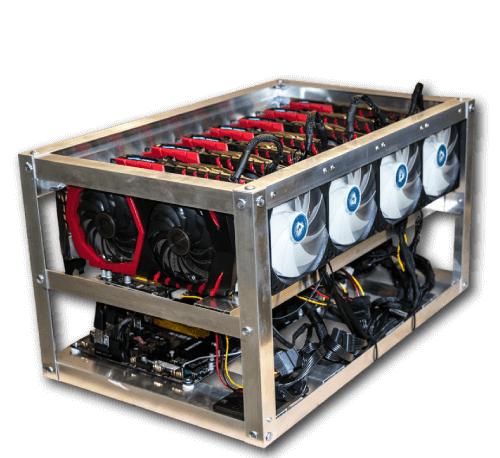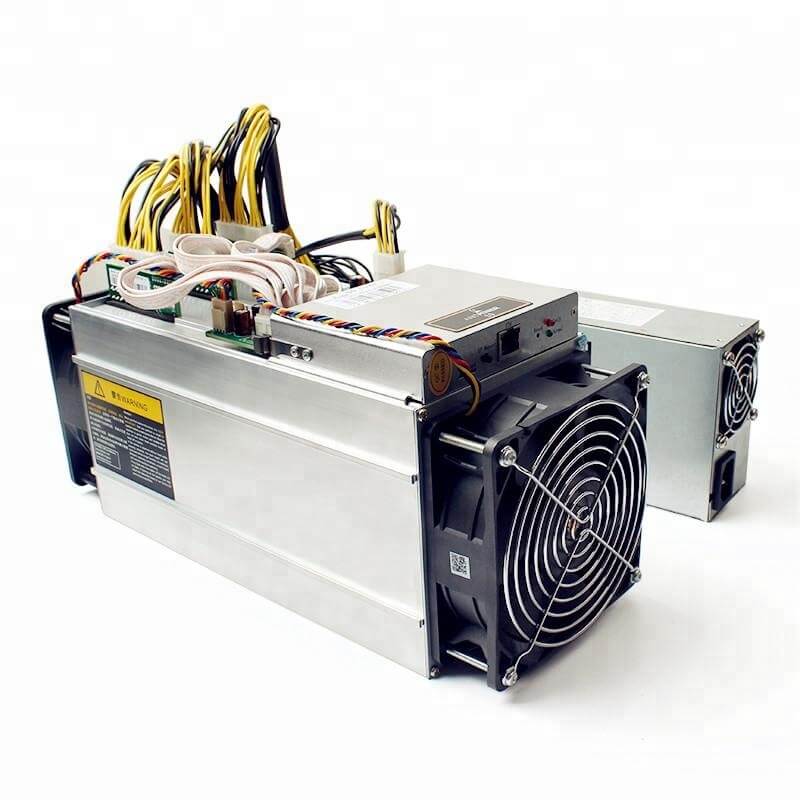Cryptocurrency Mining explained
The process of “mining” in the “crypto” world is a system of processing the various “transactions” that have been created on a network. It’s called “mining” predominantly because of how any successfully-processed transactions are rewarded with tokens of the system you’re contributing computing resources to…

Specifically, each time you “mine” a “crypto” system, the miner is basically using their computer equipment to calculate the “hash” of a series of “cryptographic” (encryption) transactions.
These transactions are the transactions within the network itself, generated by the way in which you’re able to send “Bitcoin” (or other “currencies”) to different users. The point is that the “hashing” process is the same regardless of which system you end up doing it for, or even which equipment you end up using.
To briefly explain its history, CPU’s were originally used to calculate Bitcoin “blocks”, but as the complexity of the operations increased, people discovered that GPU’s (Graphics Processing Units) were better disposed to handle the “hashing” algorithms required by the various “cryptographic” systems.
From here, other people discovered that you could use FPGA’s (field-programmable gate array) and ASIC’s (application-specific integrated circuit) to create even more powerful hashing systems.
The latter of these (ASIC’s) has actually become somewhat recognizable as the “go-to” method of crypto mining. The various AntMiner systems (the majority of which being USB-powered) have long since taken over as the “default” mining system…
Types Of Mining Equipment
Whilst the process of “mining” the various “tokens” is the same regardless of which type of system you do it on, there are a number of systems which have been created solely to “mine” the various “crypto” tokens that are available.
The point here is that it doesn’t matter if you see someone with a PC/GPU “mining” setup, or a custom ASIC – the way in which the system works is the same (the only difference lies in the speed through which it’s processed).
This means that if you’re interested in how to “mine” the various “crypto” systems, it’s important to discern the various ways through which you can do it. There are several:
1. PC-based (CPU/GPU)
This is the mst standard form of “mining”, as you can just use over-the-counter PC components for it…

Whilst these types of setup work well for many of the smaller “coins”, they’ve been long-since superseded by the ASIC-powered “cloud” mining solutions now dominating the Bitcoin space.
If you are looking at getting into “mining” (in any capacity), you’ll want to look at the above as a major investment. Whilst you may argue that you could end up using the components yourself, the reality is that they are very highly priced and ultimately become degraded extremely quickly. They’re also power-hungry.
Ultimately, you should consider that if you want to potentially mine “coins” for a crypto system, you should be looking at this as a last-resort (typically if you don’t want to pay for an ASIC or just simply don’t feel they’re worth the price).
The most important element of this setup is having a large array of GPU’s (Graphics Processing Units). You’ll be able to find more specifics online; the point is that if you have them all working from one motherboard, it should work well for you
2. ASIC Based (Antminer etc)
The other type of “mining” system is the ASIC. This is a custom chip which has been designed specifically to help users manage the various “hashing” calculations require for systems like Bitcoin…

As mentioned, all the “hashing” algorithms are the same, which means that you’re able to use the ASIC’s for any “crypto” system you want.
The main supplier of these systems is “BitMain”, who produce the “AntMiner” range of ASIC systems. There are many types of “Antminer”, with the ones pictured above being most powerful (have the largest number of chips).
These are left to operate on their own (you just plug them into a power outlet and ethernet port) – to which you’re able to achieve fast “hashing” which is more energy efficient & reliable than the various other systems that may be available.
As mentioned, as a “standalone” mining method, the ASIC is by far the most effective at present. Whilst there are rumours of other systems being developed, this is the most efficient available.
3. “Cloud Mining” / “Mining Pools” (ASIC)
Finally, the ASIC paradigm has been boosted with “cloud” / “pool” mining. This is where groups of miners are linked together to essentially form a “supercomputer” – allowing for faster and more accurate processing:

Whilst this is the realm of larger operations, as an individual user/investors, you are able to put money into one of these operations in order to enhance your mining capacity. Whether you feel it an appropriate investment is up to you.
Cloud Mining is a way to mine bitcoin (or different cryptocurrencies) without the need of owning a miner (or mining hardware). Simply said, you buy yourself some shares of mining power – like a mining pool – and profit together with the pool. This means that you only need a contract with someone who offers Cloud Mining Services and a bitcoin wallet
Cloud Mining services are for you if you want to invest in bitcoin mining without the hassle of managing your own hardware, or, in some cases can’t invest in high priced ASIC mining hardware. You can use the cloud mining to earn your coins.
Cloud mining or cloud hashing is a common concept and What it means is that it uses (in most cases) shared hashing power run from remote data centres which allows users to buy mining power of the hardware placed in. All Bitcoin mining is done in the cloud, without any offline hassle, such as electricity, hosting issues, or installation and upkeep trouble.
Here is a short list of the best Cloud mining providers based on my own experience, read my reviews if you are not already familiar with these names.
How To Get Cryptocurrency without cloud mining
Whether you’re a new bitcoin user looking to get your hands dirty with your first bitcoin wallet, or just looking for additional ways to earn a free Cryptocurrency, this section contains an up-to-date list of the best websites to help you get your virtual hands on Bitcoin and other cryptocurrencies.
Each of the sites below allows you to earn free bitcoin: some by viewing ads, some by answering captcha challenges, and some by doing crowdsourced work. If you’re looking to earn some free bitcoin, you came to the right place.
[wp-stealth-ads rows=”2″ mobile-rows=”3″]

 Bitcoin
Bitcoin  Ethereum
Ethereum  Tether
Tether  XRP
XRP  USDC
USDC  Solana
Solana  TRON
TRON  Lido Staked Ether
Lido Staked Ether  Figure Heloc
Figure Heloc